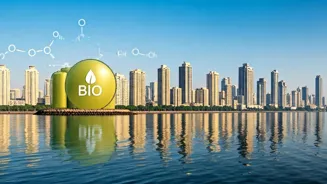India is making moves to blend more ethanol with petrol. But what does this mean for your car and the environment? Let's unpack the science.
Ethanol: The Basics
Ethanol, essentially
alcohol, is made from things like sugarcane, maize, and even rice - crops very familiar to India. It's mixed with petrol to create a fuel blend. This blend aims to reduce reliance on imported oil, boosting India's self-sufficiency and saving precious foreign exchange. Think of it as a desi upgrade!
Benefits of Blending
The push for ethanol blending has several upsides. It reduces our dependence on costly imported oil. Plus, ethanol is a renewable resource, making it a greener fuel. India's farmers also stand to gain, as demand for crops like sugarcane increases, which could lead to better financial situations for them.
Motorist Concerns
Many Indian motorists have expressed worries. Some fear the impact of ethanol on their vehicle's performance, like decreased mileage or needing engine modifications. The government, however, assures that most newer vehicles can handle a certain ethanol blend without any problems, and this is a critical point to keep in mind.
The Environmental Angle
Ethanol offers a greener alternative to pure petrol. It burns cleaner, reducing certain pollutants. However, the environmental benefits depend heavily on the production methods. Sustainable farming practices are crucial to ensure that ethanol truly reduces carbon emissions throughout its lifecycle, which is the crux of the issue.
Future in India
India is committed to increasing ethanol blending in the coming years. As we move forward, it's crucial to balance economic, environmental, and consumer interests. Continuous research, investment in infrastructure, and clear communication with motorists will be key to the success of this transition. Jai Hind!













